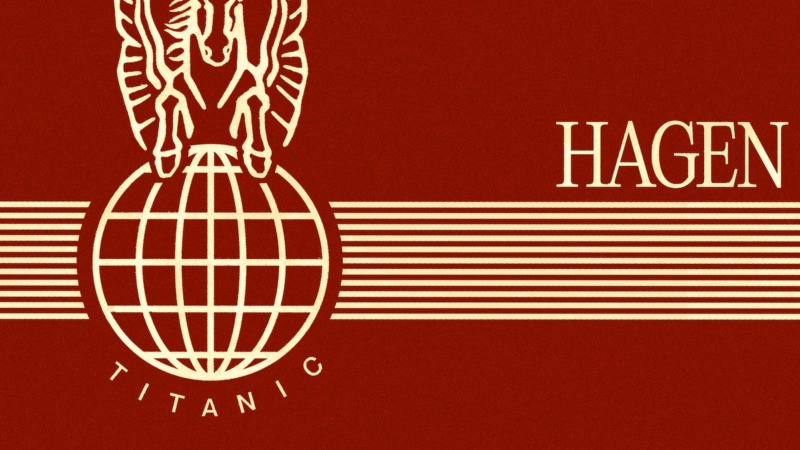Ambition and Ingenuity Make For Pop Brilliance on Titanic’s Hagen
The Mexico City-based duo’s approach to the avant garde is refreshing: they don’t dangle quick bliss on the other end of some painful exercise in sonic endurance, but blur the lines between challenge and reward, the instances of lucidity woven into the tapestry of experimentation itself.

The most enduring pop projects are often the strangest. While the gauzy serenity of soft rock and bedroom pop can be hard to resist, the albums that last the longest in the cultural zeitgeist offer quite the opposite of an easy listen. This can manifest in different ways, from the towering compositional leaps Prince took in his heyday to the thorny blend of electronics and emotions of BRAT. But even if the industry leans conservative, the most resonant pop exercises always have an awareness of, and preferably a home within, the avant garde.
The duo behind Titanic, Mabe Fratti and Hector Tosta (aka I. la Católica), have long lived in the mixed-genre experimental scene. As a soloist, Fratti’s songs bounce between free jazz and chamber pop, running between structure and unboundedness. Her collaborative projects with Amor Muere collective members and Gudrun Gut are similarly exploratory and complex. Tosta has contributed guitar to a variety of bands performing everything from punk to progressive folk rock, each project thornier than the last. And together, the power couple have been on a tear ever since they properly joined forces under the moniker Titanic roughly five years ago. Their songs are filled to the brim with jerky, arrhythmic guitar, cello, and drum lines, each more memorable and unexpected than the last. On their second album, Hagen, the pair’s exhilarating rhythms and soaring vocals create an edgy, foreboding style of experimental pop that’s both catchy and challenging.
Over a bed of handclaps and dramatic spiccato bowing, Hagen opens with “Lagrima del sol.” Fratti sings of apocalypse with the clarity of a cornet: “No me vayas a pedir el último cigarro cuando se acabe el mundo” (“Don’t ask me for my last cigarette when the world is over”). The juxtaposition between pointed instrumentals and smooth, bold singing recalls Tune-Yards’ poppiest escapades; both Fratti and Merrill Garbus have a knack for finding the groove where one isn’t immediately apparent. The song transitions from terrestrial to celestial—a homespun campfire pop-chant into a cinematic ‘80s easy listening track. “Gotera” brings us back down to Earth as Fratti delivers cryptic observations over shrill, rapid-fire recursions of guitar and drums, equal parts aggressive and meditative. It feels like Titanic’s take on a Homogenic track: it’s relatively minimal, save for spurts of percussion and cello as Fratti’s sings, “Nadie encuentra la gotera / Y yo se donde está / Se pelean en la puerta / Y nadie logra entrar” (“Nobody knows where the leak is / But I know where it is / They fight in front of the door / And nobody can go in.”).
-

-

-

-

-

-

-

-

-

-

-

-

-

-

-

-

-

-

-

-

-

-

-

-

-

-

-

-

-

-

-

-

-

-

-

-

-

-

-

-








































